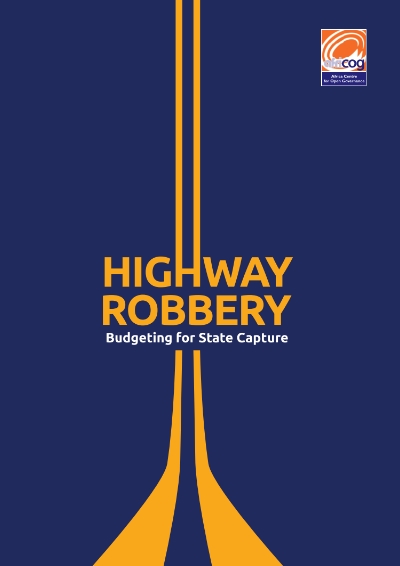Foreword
The Africa Centre for Open Governance (AfriCOG) is pleased to present its latest report “Highway Robbery: “Budgeted Corruption” as State Capture. A case study of infrastructure spending under the Jubilee Administration”.
This follows the report entitled “State Capture: Inside Kenya’s Inability to Fight Corruption”, which examined Kenya’s failed history of anti-corruption reforms and campaigns and concluded that the reasons for this failure lie in the phenomenon of state capture. The report defined state capture as “a political project in which a well-organised elite network constructs a symbiotic relationship between the constitutional state and a parallel shadow state for its own benefit”.
Former Auditor General Edward Ouko, speaking at the launch of AfriCOG’s State Capture” report, spoke of a phenomenon he referred to as “budgeted corruption,” through which the budget is inflated by monies that are earmarked to be stolen. Ouko characterised the budgeting process as a “highway”, and such projects as “exit lanes”.
With the “Highway Robbery” study, we set out to test the hypothesis that the runaway corruption that has dominated headlines during the Jubilee administration is evidence of “budgeted corruption”, which is in turn a manifestation of state capture. Budgets and expenditure in three key infrastructure sectors, electricity, roads and water are examined to see the extent to which there is systematic deviation of project choice from PFM value for money norms, and whether that divergence can be construed to be “exit lanes” for budgeted corruption as postulated by the former Auditor General.
This report represents part of a project aimed at uncovering and understanding the phenomenon of state capture not only in Kenya, but around the Africa region, in collaboration with partners. AfriCOG’s hope is that this latest study will contribute to the continuing exposure and naming of the structures and operations of state capture, which seem to obviate the conventional reform strategies that civil society has been advocating. Our aim is for citizens to understand that while democracy is the only protection against capture by special interests, at the same time, democracy is fragile, tenuous and must be permanently defended, deepened and imbued with real meaning by a vigilant and enlightened public.
We welcome your engagement and feedback.
Gladwell Otieno
Executive Director
Africa Centre for Open Governance (AfriCOG)
